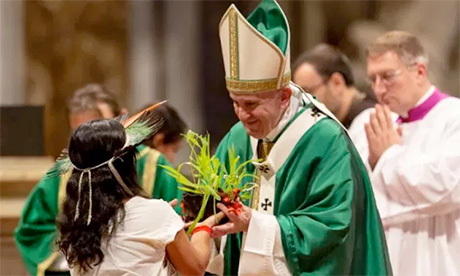A prominent bishop in the Brazilian Amazon has said there is marked disappointment in the region over the post-synodal Apostolic Exhortation Querida Amazonia.
Erwin Kräutler, the bishop emeritus of Xingu in the Brazilian Amazon, expressed concern that not a word was said about opening up the Sacrament of Holy Orders to married men and ordaining women to the diaconate.
Many bishops “were and still are” looking for a plausible explanation as to why the two issues were not mentioned.
Some of them thought that the Pope had wanted to avoid a “schism”. He had “certainly been under great pressure from the Curia” at the time, Kräutler pointed out.
“That was already crystal clear at the synod sessions and during our talks with the Curia. We found very little understanding for the problems and issues of the Amazon Region which we here experience day by day.”
According to notes from the pope included in an article published in the Catholic periodical La Civiltà Cattolica, Pope Francis did not approve a proposal to ordain married men in the Amazon region because the idea was not prayerfully discerned at a 2019 synod of bishops.
“There was a discussion, a rich discussion, and a well-founded discussion, but no discernment. This is something different than just arriving at a good and justified consensus or at a relative majority,” Pope Francis said, on the issue of addressing a priest shortage in the Amazon by ordaining so-called viri probati, or older, mature and married men from local communities.
However, just because Pope Francis did not mention the issues of ordaining married men to the priesthood and ordaining women deacons in his post-synodal exhortation, this “certainly does not mean that these issues are off the table,” Kräutler underlined.
He recalled that right at the beginning of Querida Amazonia Pope Francis had made it clear that he would not be going into all the issues the Synod had gone into and had asked people to read the final Synod document very carefully.
And the final document, Kräutler pointed out, had underlined how important the permanent diaconate for women was in the Amazon Region.
He personally was convinced that the starting point of every discussion on the priestly ministry could not be the tradition of the Early Church but rather the needs of today.
